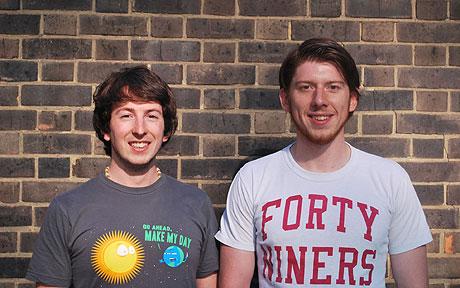Tonight there came a moment that you might call the end of an era in the U.K. tech startup scene. One of the first of the ‘new wave’ of startups from the mid-2000s lost its last founder, as Andy Young (pictured left), co-founder of the group management startup GroupSpaces, announced he was leaving to join the payments startup Stripe to be a core part of its “expansion into the U.K. and beyond.” Evidently he came to this decision – after seven years of building the startup – that GroupSpaces was not about to fulfill the hopes of its founders as the next big thing in managing group activities, and he has written a long post-mortem to that effect.
His co-founder David Langer already departed last May to start a new venture, called Hasty, in SF.
GroupSpaces was founded by the two young men in their college dorm and went on to raise money from both U.K. and U.S. institutional investors.
Young says GroupSpaces will continue to operate “as a sustainable small business” and while he is “hugely proud of the contribution and impact we’ve made” and remains “dedicated to seeing GroupSpaces continue to thrive and achieve the best it can” he admits that growth had been “slower than we hoped in financial returns” and did not become the “proverbial billion dollar success” as they’d hoped. It will now be managed by existing employees until a new strategy is put in place to partner or exit.
GroupSpaces raised $1.3 million in a Series A round from Index Ventures, 500 Startups and a number of high-profile Angels, including Chris Sacca – and all this during the last Series A crunch of 2010. However, despite reaching well over half a million users, and being used by many professional associations and sports clubs, it never managed to create that high-growth business required by VC investment. It’s something Young pores over in detail in his post.
Some highlights include: how they failed to appreciate “a lack of product-market fit as we moved into new markets,” insufficient focus, a confused strategy, premature scaling and “moving too slowly after we raised our Series A.”
However, they did create a real business that “provides significant value to our many loyal users, and more continue to sign up as customers each day” and who “currently rely on the unhappy marriage of a Yahoo/Google Group coupled with an Excel spreadsheet/google doc for member records, in addition to their own website and other services for events or payments.”
I think many observers would agree with that statement.
Here’s an interview I did with them two years ago:
